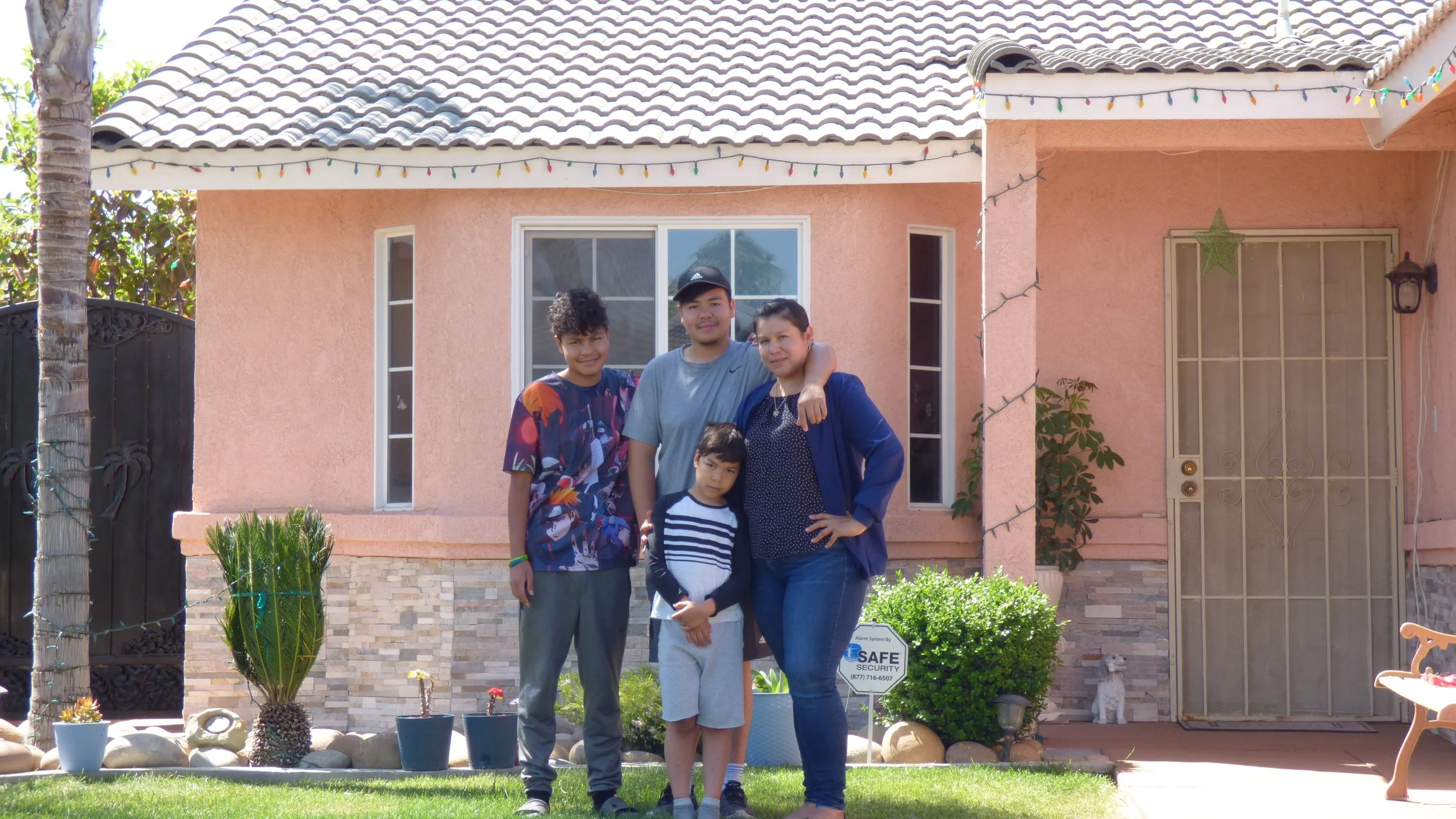In the heart of California, the San Joaquin Valley is a region where agriculture is not just an industry but a way of life for many. CARB’s Funding Agricultural Replacement Measures Emissions Reductions (FARMER) Program funds transformative initiatives that foster the adoption of innovative farming techniques, integrating advanced agricultural technologies, and promote community engagement and has been making monumental steps towards more sustainable agriculture across the valley.
Energy Upgrades for Farmworker Household Brings Safety, Comfort, and $3.00 Energy Bills
Thanks to funding from California Climate Investments through the Low-Income Weatherization Program (LIWP), Rocio Hernandez and her family reduced their home energy costs by installing a new rooftop solar system and energy efficiency upgrades. At first, Mrs. Hernandez thought the referral flyer her husband brought home after work as a seasonal farmworker during the grape harvest in Delano was too good to be true. A local farmworker agency provided information about the LIWP Farmworker Housing Component, a California Climate Investment program focusing exclusively on the installation of energy efficiency measures and solar photovoltaics (PV) to reduce greenhouse gas emissions for farmworker households at no cost.
Water Energy Grants Provide Direct Benefits to Low-Income Households in Rural Counties
The Association of California Community and Energy Services partner agencies replaced 1,090 washing machines and 855 dishwashers with water- and energy-efficient machines . These energy and water savings will continuously provide cost savings across various communities in Kern, Madera, Contra Costa, Kings, San Francisco, and Merced counties and other low-income homes in San Mateo, Shasta, and Tehama counties.
Capturing Methane to Create Renewable Fuels in Kern County
The CalBioGas Kern County biogas cluster – or Kern Cluster – was developed by a joint venture between California Bioenergy, Chevron U.S.A. Incorporated, and several California dairy farmers. The Dairy Digester Research and Development Program has awarded grants totaling over $17.6 million from California Climate Investments to the dairy operations in the Kern Cluster, which is comprised of eight family‑owned dairy farms. Thanks to these funds, these dairies now capture and prevent the release of methane – a greenhouse gas 25 times more potent than carbon dioxide – and are creating a renewable source of fuel.
Dairy Digester Delivers Renewable Energy in Kern County
Located outside Bakersfield, the Carlos Echeverria and Sons (CE&S) Dairy Biogas project will use anaerobic digester technology to produce energy, reduce GHG emissions, comply with environmental regulations and increase nutrient availability to crops. The project is funded through CDFA’s Dairy Digester Research and Development Program (DDRDP), supported by Cap-and-Trade dollars and the California Energy Commission.
Collective Biogas Operation Reduces Emissions from Multiple Central Valley Dairies
Calgren Dairy Fuels (CDF) is the first California dairy digester pipeline cluster that upgrades dairy biogas to biomethane for utility pipeline injection. It is currently the only one of its kind in California, and with 20 digesters serving 22 dairies, it is the largest collective dairy biogas operation in the country.









